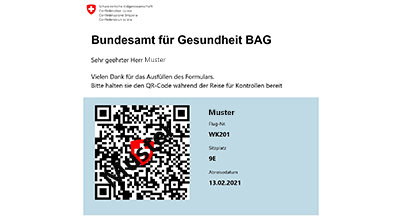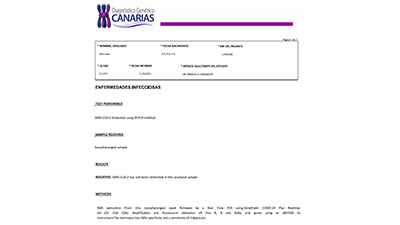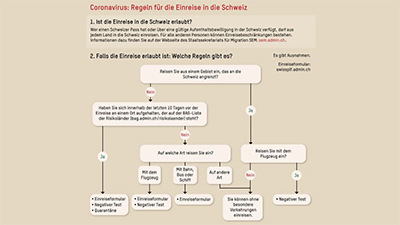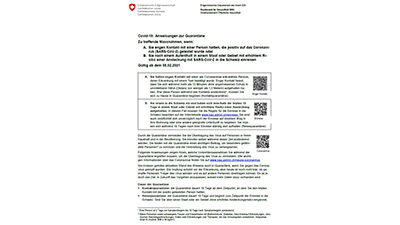Our politicians tell us that we are living in a pandemic, a global threat to human health. In such a case, I would at least expect that the politicians would try to support each other, but the responsible EU minister refuses, for example, Switzerland to exchange tracing data, which is probably not very helpful in fighting a pandemic. The Swiss authorities, who are of course not used to dealing with crises, manage to not exchange information that is appropriate between the federal government and the cantons. Based on our journey home from Gran Canaria to Switzerland, we describe our experiences in this regard.
Before departure

We learn from the swiss state media that the Federal Council has decided to further tighten the measures. The entry into force affects our return date. Among other things, we now must present a negative PCR test before we can board the aircraft. That makes sense, when entering Spain, we only had to present the test at the airport in Las Palmas, i.e., after the flight.
The airline informs us about a week before departure that we have to present a negative PCR test that is not older than 72 hours and that we have to register with the Federal Office of Public Health, a link is currently provided. Unfortunately, there is no information about where we can get a PCR test, and the local Swiss honorary consul only sends an automatic response to such a request that we should contact the consulate in Madrid.
Registering with the FOPH online is quite easy and quick. Our personal data and our travel data are requested and in response we immediately receive an “entry confirmation” with a QR code. We had to go through the same procedure three months ago when we entered Spain.

Almost every local walk-in clinic on the island can carry out PCR tests, but foreigners can only get these tests in Las Palmas and Maspalomas at the university hospitals. The registration is a little complicated and takes longer than the test, so start the process early enough! Finally, we get an appointment from the hospital and during this appointment everything is well organized and very efficient. That we are always afraid during these tests that the giant cotton swab might come out at the back of our head is just a side note. We already receive the test result ten hours later. Now we are prepared with everything for the return journey.
During the trip

The check-in procedure takes a little longer during Corona times, as the ground staff now has to check, in addition to the ticket and the luggage, whether the PCR test is negative and not too old and whether the QR code from the FOPH is available. In our case, the PCR test is precisely checked and read, but the QR code could not be read anywhere, it was sufficient to have that QR code.
On the plane, the cabin crew informed that everyone had to register again with the cantonal authorities and that everyone had to be in quarantine for ten days. Here, too, the airline distributed an exemplary piece of paper with the exact information and corresponding links.
At the airport in Kloten we did not go through any control, as we were travelling within the Schengen area, could receive our luggage and get on the train. The FOPH QR code was not read anywhere, it was completely useless. In Spain, three months ago, the QR code was scanned at least and you could only enter the country if it were correct.
After the arrival

We register with the cantonal website, about the same data is requested as with the FOPH. We immediately receive an extremely friendly thank you email that we have registered. Why the federal government cannot automatically send this simple data to the cantons is a mystery to me.
On the next working day, a very personable lady from the cantonal corona authorities contacted us and asked us how we were doing and informed us that we should adhere to the quarantine. On the last day of the quarantine, she wants to call again. This control call gives us a good feeling of being protected, of being at home.


Hard times now a days… wish you the best of the best.
thanx, Edgardo, and soon our freedom back!